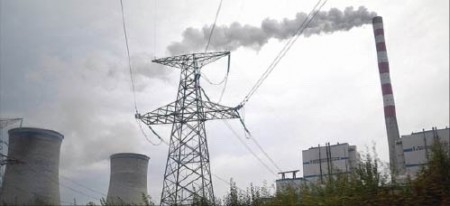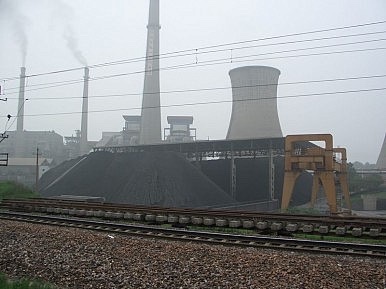
 Solutions to carbon reduction are within China’s reach:
Solutions to carbon reduction are within China’s reach:
In a recent China Daily editorial, Paulson Institute sustainable urbanization experts Deborah Lehr and Leigh Wedell argue that improving energy efficiency in buildings can be one of the most effective levers in limiting China’s carbon emissions. Under President Xi Jinping’s urbanization plan, China will build over half of the world’s new buildings to accommodate the 100 million people relocating to cities over the next six years. The Paulson Institute is helping China do that the right way.The Institute and its partner, the China Center for International Economic Exchanges (CCIEE), recently convened experts to develop recommendations that, if implemented, could dramatically improve energy efficiency in the buildings sector. As Institute Chairman Hank Paulson noted, “If China is able to reduce the energy footprint of its buildings, the savings would be greater in reducing greenhouse gas emissions than those from all other energy-using sectors combined.”

 China’s Environmental Enforcement Glitch:
China’s Environmental Enforcement Glitch:
China is taking important steps to protect its environment. But there is a mismatch between the central government’s ambitions and the capacity of local officials to realize that ambition, writes Council on Foreign Relations China expert Elizabeth Economy in The Diplomat. Corruption, lack of interest, and misaligned incentives contribute to weak implementation. But the biggest problem is that Beijing demands too much and invests too little in ill-equipped and understaffed local officials. As a result, Henan, Hubei, and Shaanxi provinces failed to complete 90 percent of the 474 pollution prevention projects planned along the middle route of the South-North water transfer canal from Danjiangkou Reservoir, in Hubei, to Tianjin and Beijing.

 Is Climate Disaster Inevitable?:
Is Climate Disaster Inevitable?:
The answer, according to a piece in the New York Times by astrophysics professor Adam Frank, is no. Planetary science, he says, may help us avoid the demise of our civilization. Climate disaster has happened on earth before, two billion years after the formation of the planet. Called the Great Oxidation Event, the “respiratory excretions of anaerobic bacteria” caused a cosmic reaction that created the oxygen we breathe today. Planetary science, Frank argues, has shown that any species “harvesting energy through combustion must alter the chemical makeup of its atmosphere to some degree.” The implication: if we earthlings study sustainability as an astrobiological problem, we can better control the level of our “excretions” (i.e., carbon emissions), and may be able to avoid climate cataclysm.




